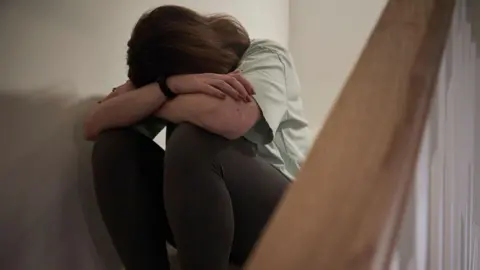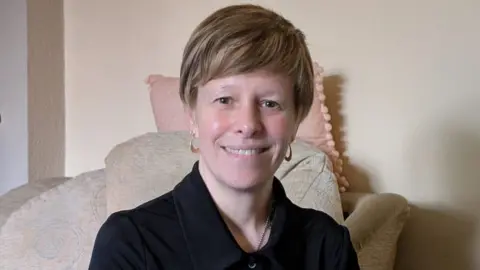Coercive control to be treated like other domestic abuse offences
 Getty Images
Getty ImagesOffenders convicted of coercive or controlling behaviour now face tougher management from police and probation services in England and Wales, meaning the crime is "on a par" with other domestic abuse offences.
From Monday, those convicted of the crime and sentenced to 12 months or more will automatically be managed under multi-agency public protection arrangements (Mappa).
Under Mappa, the police, probation, prison services and other agencies are legally required to work together to better manage the risks posed by the offenders.
For the first time, it puts controlling or coercive behaviour on a par with other domestic abuse offences, including threats to kill and stalking, the Ministry of Justice (MoJ) said.
Agencies are legally required under Mappa to share any information which indicates an increased risk to former partners and members of the public.
Offenders managed under the scheme have a reoffending rate less than half of the national average, according to the MoJ.
Coercive control is a psychological type of domestic abuse where the perpetrator uses threats, humiliation and intimidation to harm and frighten the victim.
Over a period of time, this can isolate the victim and deprive them of their independence.
It is often seen alongside other forms of domestic abuse, and has been a criminal offence in the UK since 2015.
'Know the warning signs'
Samantha Billingham was in a controlling and abusive relationship where she said she "lost her sense of identity, belonging and purpose".
She said coercive control had a "huge effect" on her life even after leaving the relationship, and she lost the ability to trust people including long-term friends.
Ms Billingham said the tougher management of offenders was "a step in the right direction" but added: "I don't feel it's enough alone.
"Survivors must be believed and taken seriously when reporting coercive control.
"Education is key and awareness is power - we need it in all schools, colleges and universities. We need our young people to know the early warning signs and what coercive control is."

A change in the law around the management of people convicted of controlling or coercive behaviour was introduced in the Victims and Prisoners Act 2024 by the previous government, and comes into force on Monday.
Before this, those convicted could only be actively managed on a discretionary basis.
The law change applies to offenders sentenced to at least 12 months' imprisonment, including suspended sentences, or those given a hospital order for an offence of controlling or coercive behaviour in an intimate or family relationship.
Jess Phillips, the minister for safeguarding and violence against women and girls, said: "For the first time, under this change to the law, coercive or controlling behaviour is being placed where it belongs – on a par with serious violent offending."
Women's Aid said it welcomed plans to treat the crime "seriously".
The charity's chief executive Farah Nazeer said coercive control was a "key tool used by perpetrators of domestic abuse, as it isolates survivors and makes them dependent on an abuser".
She added that it was "essential" for specialist domestic abuse services to be routinely included in the Mappa process "if survivors are to be properly protected by this measure".
If you are affected by any of the issues raised, help and support is available via BBC Action Line.
